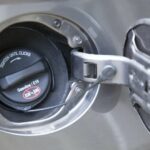The question of whether OBD2 scanners are effective on diesel engines is a common one among car owners and professional mechanics. The straightforward answer is yes, diesel engines are indeed compatible with OBD2 scanners. Since the mid-1990s, the introduction of OBD2 (On-Board Diagnostics 2) as a standardized system meant that most vehicles, including those powered by diesel, adopted this diagnostic port. Therefore, with the appropriate scanner, you can effectively diagnose problems in your diesel engine, much like you would with a gasoline engine. However, it’s crucial to understand that diesel engines possess unique operational characteristics that sometimes necessitate specific diagnostic tools and capabilities. Let’s explore why OBD2 scanners are indispensable for maintaining diesel engines and how they can be a valuable tool for saving both time and money on repairs.
The OBD2 system is a standardized diagnostic protocol implemented in vehicles manufactured from 1996 onwards, encompassing diesel vehicles. This system is designed to monitor the performance of a multitude of components within the engine and related systems. When the system detects any anomaly or malfunction, it generates diagnostic trouble codes and provides access to a wealth of real-time data.
This universality means that regardless of whether your vehicle is equipped with a diesel or gasoline engine, an OBD2 scanner serves as a universal tool for diagnosing potential issues. By connecting an OBD2 scanner to your vehicle’s diagnostic port, you gain immediate access to crucial information regarding your engine’s operational status. This allows for the diagnosis of a wide array of problems, from emissions system faults and engine misfires to sensor failures and other performance-related concerns.
It is important to acknowledge that while OBD2 scanners are generally compatible with diesel engines, the market offers a wide range of scanners with varying levels of capability and vehicle compatibility. Certain basic scanners might provide generic OBD2 functionalities, while more advanced scanners are engineered to support the specific protocols and diagnostic needs of diesel vehicles, including heavy-duty trucks and equipment. Therefore, when selecting an OBD2 scanner for diesel engine diagnostics, it is advisable to verify the scanner’s compatibility with your specific vehicle’s make, model, and year to ensure accurate and comprehensive diagnostic capabilities.
In conclusion, OBD2 scanners are indeed valuable and effective tools for diagnosing and troubleshooting issues in diesel engines. Ensuring compatibility with your specific diesel vehicle is key to leveraging the full potential of OBD2 diagnostics and maintaining optimal engine health. When selecting a scanner, prioritize models that explicitly state diesel compatibility to guarantee proper function and reliable diagnostic insights.
